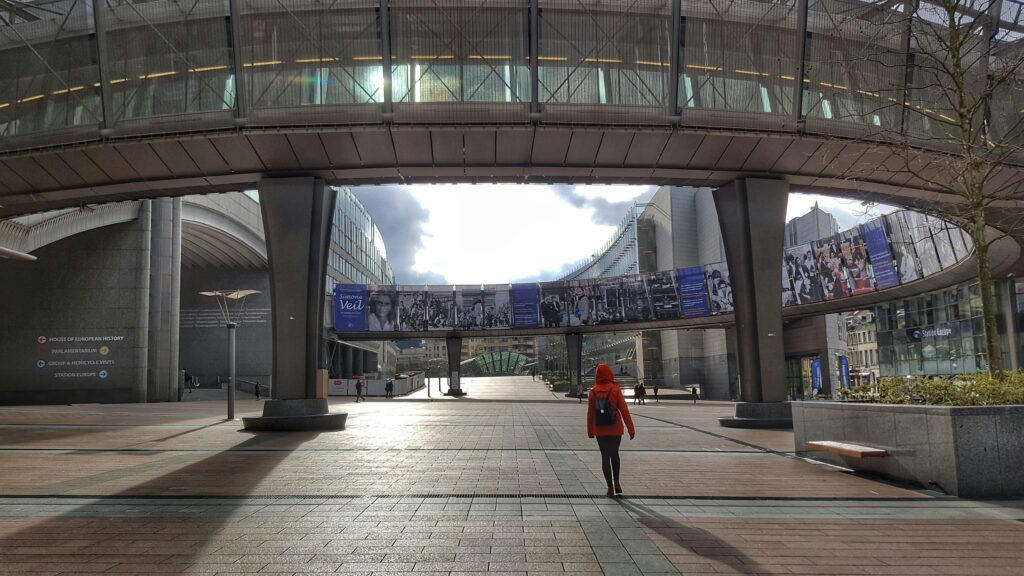Belgian police raided Huawei’s headquarters in Brussels as part of an investigation into claims that the Chinese tech company bribed EU politicians. Authorities arrested multiple people linked to the case and seized electronic devices and documents. The investigation is part of a growing concern over foreign influence in European politics.
Huawei and EU Politicians Under Scrutiny
According to reports from Belgian media outlets Follow the Money, Le Soir, and Knack, investigators suspect as many as 15 current and former European lawmakers of being involved in the scandal.
Police conducted raids across Brussels, Flanders, Wallonia, and even Portugal on Thursday. Officers sealed the offices of two parliamentary assistants believed to have played a role in the alleged bribery scheme. The Belgian prosecutor’s office confirmed that officials had informed the European Parliament of the investigation. However, Huawei has not issued a public response to the accusations.
The case adds to concerns about corruption in EU institutions. In 2022, the “Qatargate” scandal exposed lawmakers who allegedly accepted bribes in exchange for political favors. Experts warn that similar corruption cases could continue without stronger regulations.
Lobbyist at the Center of the Scandal
Authorities have identified Valerio Ottati, a 41-year-old Huawei lobbyist, as a key suspect. Investigators believe he played a major role in influencing EU policies in favor of the company. While police have not yet searched the European Parliament, they may proceed if lawmakers agree to lift the immunity of those involved.
Several Members of the European Parliament (MEPs) have voiced their concerns. Daniel Freund, a Green Party MEP, said, “The EU’s influence attracts corruption. We must act fast to protect our institutions.” Manon Aubry, an MEP from The Left, criticized the slow response: “Warnings were ignored for too long. Without stronger rules, corruption will keep damaging the EU’s credibility.”
Nicholas Aiossa from Transparency International also blamed EU lawmakers for failing to implement stricter anti-corruption policies. “Without clear rules on gifts, paid travel, and outside employment, corruption will always be a risk,” he said.
EU Commission Calls for Security Measures Against Huawei
The European Commission declined to comment on the investigation but reiterated security concerns over Huawei’s role in European telecommunications.
EU spokesperson Thomas Regnier warned that Huawei poses “a much higher security risk than other 5G providers.” He urged EU nations to act quickly, stressing that further delays could expose the entire bloc to cybersecurity threats.
Over the past few years, several European countries have debated restrictions on Huawei’s involvement in their telecom networks. The United States and other allies have raised concerns that Huawei’s technology could be used for spying. While Huawei has repeatedly denied these allegations, pressure is mounting for the EU to take action.
Growing Pressure for Transparency and Reform
As the investigation unfolds, many politicians and analysts are calling for stronger measures to prevent corruption. Experts argue that without transparency reforms, the EU risks further scandals that could damage public trust.
“The public already doubts the integrity of EU institutions,” said one political analyst. “If these cases keep happening, people will lose faith in the system.”
Belgian authorities have promised a full and independent investigation. They are also considering new policies to limit foreign lobbying and financial influence in the European Parliament.
The Huawei bribery scandal is likely to spark intense debate over corporate influence in politics in Eurrope. With multiple arrests already made and further investigations expected, the EU faces growing pressure to implement stricter regulations to safeguard its institutions.
